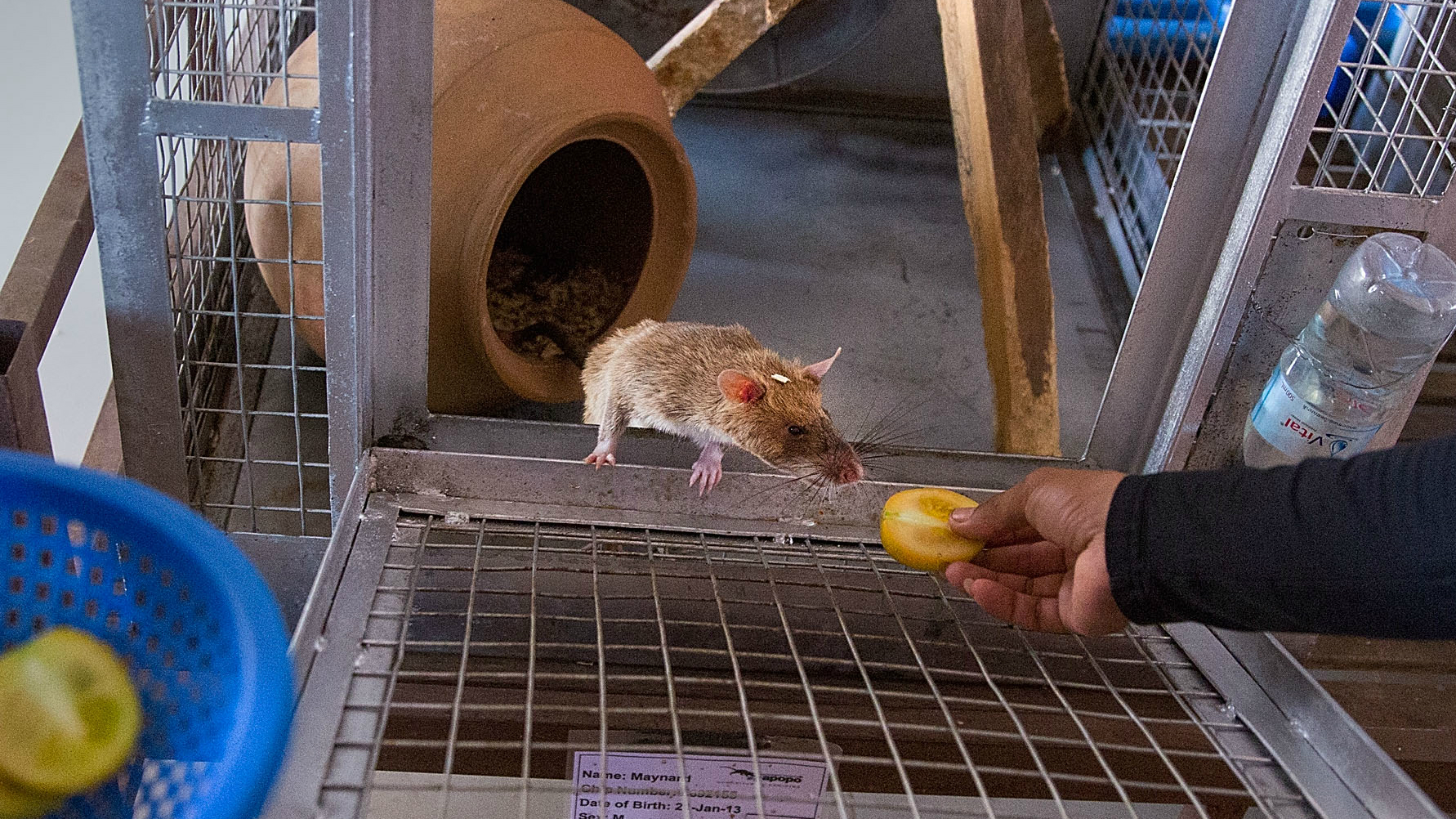Technology & Innovation
All Stories
In an unprecedented use of Freedom of Information laws, an anti-GMO group wants to read the emails of forty university professors with professional associations to biotechnology firms.
AI will throw a wrench into many of our theological foundations. How will we adapt?
Professionals who value what they’re worth don’t do favors for business associates. You want a favor? Go to a party.
Technological advancements will eventually make scarcity a non-issue. But will the people driving these developments allow everyone to enjoy it?
The rats, which are trained to sniff out TNT, are among the most efficient tools available to Cambodians trying to rid their country of over 4 million landmines left over from the Khmer Rouge.
The internet now plays such a large role in daily life that it’s difficult to imagine many people getting by without it.
Facebook has released information on the first full-scale drones designed to deliver Internet services to underserved populations across the globe that lack developed infrastructure.
The threat is real and many scientists and engineers are standing behind them.
Balancing Act is an online tool used by municipalities that gives residents the ability to look at and tweak their city’s budget so that there is no deficit.
After years of their anti-drug rules going unenforced, recent revelations have caused the ESL to take action.
It’s not the fault of the journalists, entirely. Researchers call for better tools to help keep sources safe and secure.
Researchers have found men who throw sexist comments at women are reacting to an upset in their hierarchy, trying to retain their dominance.
A new social media service designed by a Mumbai teenager promises to allow users to “hear the world speak.”
Detroit, Chicago, and Oakland have all suffered from the terms presented by the finance firm.
We surprise the world’s brightest minds with ideas they’re totally unprepared to discuss. This week on Big Think’s podcast, we’re joined by poet and educator Clint Smith.
A plant with twice the nutritional value of kale, reported to taste like bacon when cooked, could soon be entering the U.S. health food market, possibly expanding its reach even wider.
Division of labor creates a need for others. And it logically connects your interests with the interests of those needed others (which complicates evolutionary trade-offs).
Since 1979, middle-income workers have seen their wages rise 6 percent. That’s an average raise of 0.167 percent a year.
More than a million Americans per year elect to go abroad for expensive medical procedures, building a vacation that, in total, costs less than being treated at home.
Your Facebook feed is a virtual echo chamber. It serves the same purpose as Fox News or MSNBC.
Many people use Uber and Airbnb to make some money on the side, but the cost of this, economists argue, is the displacement of more stable industries like traditional taxi and hotel companies.
The benefits of playing games reach beyond just entertainment — they’re a great outlet. However, at the end of a stressful day, sitting down with a violent video game may not be the best idea.
We surprise the world’s brightest minds with ideas they’re totally unprepared to discuss. This week on Big Think’s podcast, we’re joined by beloved actor/educator Bill Nye the Science Guy.
That dizziness you reportedly feel after watching a 3D film may be all in your head.
The coming decade will see an emergence of new innovations that will keep drunk drivers off the road without the inconvenience of existing breathalyzer technology.
A recent study makes a compelling new case for why we shouldn’t take drugs like Adderall precisely because they help us to succeed at things we otherwise wouldn’t.
Does the claim made by the leader of the €1 Billion Human Brain Project stand a chance of coming to fruition?
Dermatologists are taking advantage of smartphone technology to offer data-driven, personalized skincare recommendations.
Because the technology is new, equipping a car with autonomous technology costs about $150,000 (the zero-emission fuel system comes standard).
Sensory Percussions reinvigorates music by giving drummers the ability to control electronic samples, synths, and audio effects with the artistry they have developed by playing their own acoustic drum kits.





























